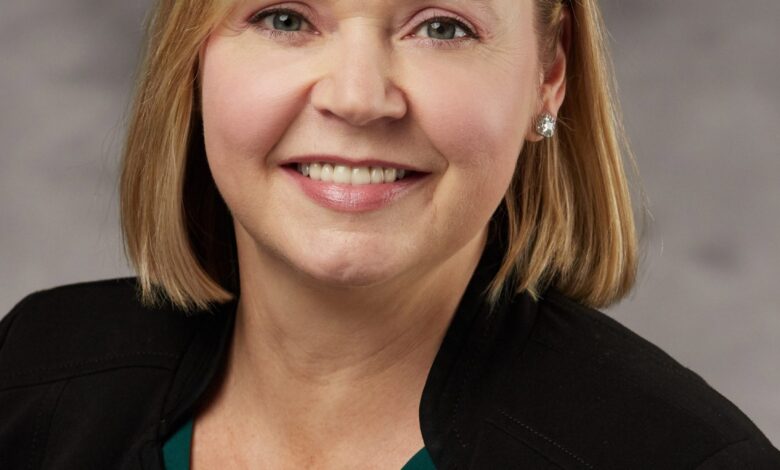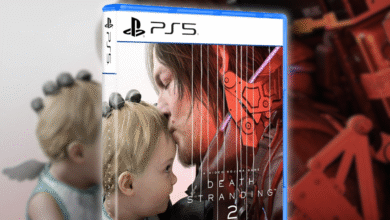Will latest US responsible gaming association really make a difference?

In April, the newly-formed Responsible Online Gaming Association (ROGA) appointed well-known and widely-respected responsible and problem gambling expert Dr Jennifer Shatley as executive director. The move gave the organisation instant credibility.
What, another responsible gaming association?
Does the gambling industry need another group that purports to fulfill some major role, but in reality does very little? Surely that box is ticked by most of the trade associations? It seems that the ROGA may be a different beast, so the answer could be yes.
ROGA started in March with seven members – BetMGM, bet365, DraftKings, Fanatics Betting & Gaming, FanDuel, Hard Rock Digital, and Penn Entertainment. Bally’s joined in June. It’s basically most of North America’s heavy hitters. But can they achieve anything, or is this just another smoke-and-mirrors group designed to make it look like the industry is behaving responsibly?
The group points to five pillars on which it is built: research, consumer and industry education and awareness, promoting best practices, building an independent data clearinghouse and creating an independent certification program.
Dr Shatley’s credentials are very impressive, with 25 years in the responsible gaming (RG) field. As she explained, she spent “17 years at Caesars as their vice president of responsible gaming policies and compliance; I created everything that they do across all of the casinos, and then in the online spaces that were there at the time.”
Shatley, Caesars ‘trailblazers’ in responsible gaming at Caesars
Is time served enough to impress? For much of Dr Shatley’s service to Caesars, the focus was on the land-based customer. She didn’t spend much time considering online gambling, which is where the US is seeing mounting issues and opposition.
Dr Shatley says that because of her varied background, she sees the responsible gaming through many lenses. This will be invaluable because ROGA is committed to pioneering research for the sector. She said: “I understand responsible gambling from an operations perspective, which I think is important: how do you action research? How do you translate it into that space? I was fortunate enough to do a lot of things first in the field, things we take for granted in RG today we started at Caesars.
“For example, proactively engaging with guests around responsible gaming, having conversations with them to try and change behaviour, because it’s all about prevention; the first technology, the first RG-specific ad campaign… I’m not going to say we were pioneers because that makes me sound old! But we were trailblazers.”
Dr Shatley brings multiple views to RG
Dr Shatley’s history of ploughing new furrows bodes well for the organisation, certainly. Too many conversations around responsible gaming now are the same people and groups having the same conversations, but in different locations. So what of the doctor’s lenses?
Dr Shatley brings experience in research, worked at the International Gaming Institute and has a PhD in public policy. Those experiences, along with working in the problem-gambling arena give her a unique set of perspectives.
“What should we be doing not only in venues, but outside of platforms and operators?” she said. “I’ve also been the president of the Nevada Council on Problem Gambling for quite some time. So I also look at it from an advocacy perspective as well. I have a lot of different lenses.”
$20m in funding seems like a good start
With this kind of depth to her background, it certainly appears that ROGA might be different. The group started with a declaration of $20m in funding from the original seven founding companies. Dr Shatley did explain to us that how the funding was divided between the contributors. Where it would be spent was yet to be properly decided. When we spoke, the association was in only its first few weeks of life. But $20m seems to be enough to get through year one and have an idea of where to place funds for maximum efficacy in future.
One of ROGA’s core tenets is research, and with eight operators now on board, the potential for research data is colossal. Dr Shatley agrees.
“How do we move knowledge forward?” she says. “How can we enhance programs with these evidence-based best practises? And to do that it’s driven by research.
“We’re also looking at building a data clearinghouse to see how we can share data, not only among our members but among the research community. How can we better protect consumers? There’s a lot of things we have to work through in anti-trust, privacy laws, confidentiality, jurisdictional issues … But we are on a long-term vision and looking at how we share information across a variety of platforms so we can enhance these programs.”
Sharing information crucial
Dr Shatley believes the US is a challenge because each state has its own laws and regulations.
“So we will be working with regulators and legislators to see how we can best share information,” she explains. “Overlaid on that are federal rules on confidentiality, privacy and those things, there are layers to this that we will have to work through. But it’s an important component and we have to understand it in order to better share data.
“There are some movements in the US of regulators trying to work together more, and so we would definitely want to work alongside them to see how we can navigate some of these legal hurdles and put in more robust sharing mechanisms.”
ROGA already moving forward, but research takes time
As for when we might see some returns on this, how long is a piece of research?
“We have five pillars, there is a lot of work going on to move these forward,” she says. “We’re working on the research framework and getting some research moving. But it will take time, obviously, and this one will take a little more time because we have to rely on conducting research to understand what those best practices are. We can look at existing research as well and start the development of that. But we’re moving forward with all of our components and initiatives.”
There are many critics of responsible gaming as it currently exists, with many recovering addicts particularly scornful for a number of reasons. Effective marketing and communications is giving the right message in the right language and right media, at the right time. But I’m not sure RG efforts at present are hitting any of these, never mind all of them.
Responsible gaming must be tailored to online space
Is there the potential for ROGA’s work to address this? Dr Shatley says “Absolutely. That’s one of the driving factors as to why ROGA was created. This is an incredibly important issue and I have dedicated my career to it, it’s a fascinating and complicated field.
“Our members understood that they could do more to advance the field collectively than individually. And we’re not looking at keeping the status quo. We’re really focussed on research because we want meaningful initiatives and we want to enhance what we’re doing. We don’t want to just take what’s historically been done in a land-based environment, we want to understand how to better tailor these programs and create best practises specifically for the online space, and look at how you integrate this more into the customer experience, instead of it being a stand-alone program.
“Responsible gaming is constantly evolving and we should be innovating and looking at how we can evolve and enhance along with the knowledge base – but we have to build that knowledge base.”
One major issue for RG tools is that they’re incorrectly seen as resources for people struggling. They are viewed as being for those who already have issues developing, rather than to be used as prevention tools.
“The idea is, all customers should be engaging in these responsible gaming programs, they’re the target, these are designed to prevent problems from developing and not waiting for a problem to develop,” Dr Shatley adds. “But because of the way they have been branded and positioned, the majority of customers ignore these programs because they think it’s about problem gambling and it’s not relevant to them.
“How do we position these so people understand they are for everyone, they’re not just for people who are already struggling.”
To a large extent, this is also how the tools are treated by operators. This is demonstrated most fully by not incorporating them into the sign-up process for each player. Is there scope for something as bold as this to be undertaken by ROGA’s founders?
Goal is to do better than just what is required
Dr Shatley shies away from anything so direct.
“It’s a variety of things for interacting with and educating consumers around this, but policy is extremely complicated,” she said. “We have to understand, if we are putting things in place, are they having the effect that we want? There has been research that has shown mandatory tool usage has caused people to set limits that are considerably higher than they normally would play, and that can lead to them playing more as a result.
“That’s an example of nuance, and why research is incredibly important. If we’re putting things into place we need to understand the effect they will have – a positive effect, an unintended negative effect, or none. We need an evaluation framework for this, to be able to adapt things if they are not working, so being more nimble. Not, when something is set in policy, doing that regardless.
“What we are trying to do with ROGA is create those evidence-based best practises. I don’t believe in just operating to compliance and I never did that at Caesars; we always operated well above any regulatory framework and that way, no matter what market we went in to, we were able to exceed expectations and that’s what we’re looking at with ROGA. How can we raise the standards for our members, and also raise standards for the industry?”
Research should focus on those who gambling without issue
There is research out there (by Dr Michael Auer and others) showing that operators and players can have a longer relationship without addiction issues when players are “cared for” by the operator. But that seems to be ignored by many in order to meet quarterly profit reports and dividends.
Dr Shatley shared this insight when I put that question to her: “I do believe that historically, when we have been developing responsible gambling programs, we have been looking at those that develop problems and trying to back into prevention programs.
“I do agree that what’s missing in research and one of the areas that I would like to focus on, is looking at those individuals that do not develop problems; those that are engaging in a way that’s not harmful. What can we learn from them in a prevention perspective? What are their protective factors? Are there messages that resonate with them? What can we build prevention programs around?”
At the same time, the programs in place should also include a way to act on concerning behaviour.
“Once you identify [risky behaviour], you need to do something about it. What are the best things to do? We need to understand that. And AI is developing, there is a lot of potential there but we need to understand what it’s identifying, how, and how to use it in an ethical way … There are so many factors.”
Players are also responsible for their actions
Sustainability is a critical piece to the long-term success of the industry. But Dr Shaley the responsibility doesn’t just fall on the shoulders of operators.
“The individuals also share a role in the decisions they make,” she said. “It’s something we should be driving with evidence, research and understanding what all of these different intervention methods should be, the consumer behaviour around them because that can be tricky as well… it’s a multi-faceted issue and there are a lot of things to look at.
“But that’s the exciting part of ROGA as we delve into these things. We want to delve into the research, we want to move forward these best practices and understand how to do this better. That’s what we are gearing up to do.”


